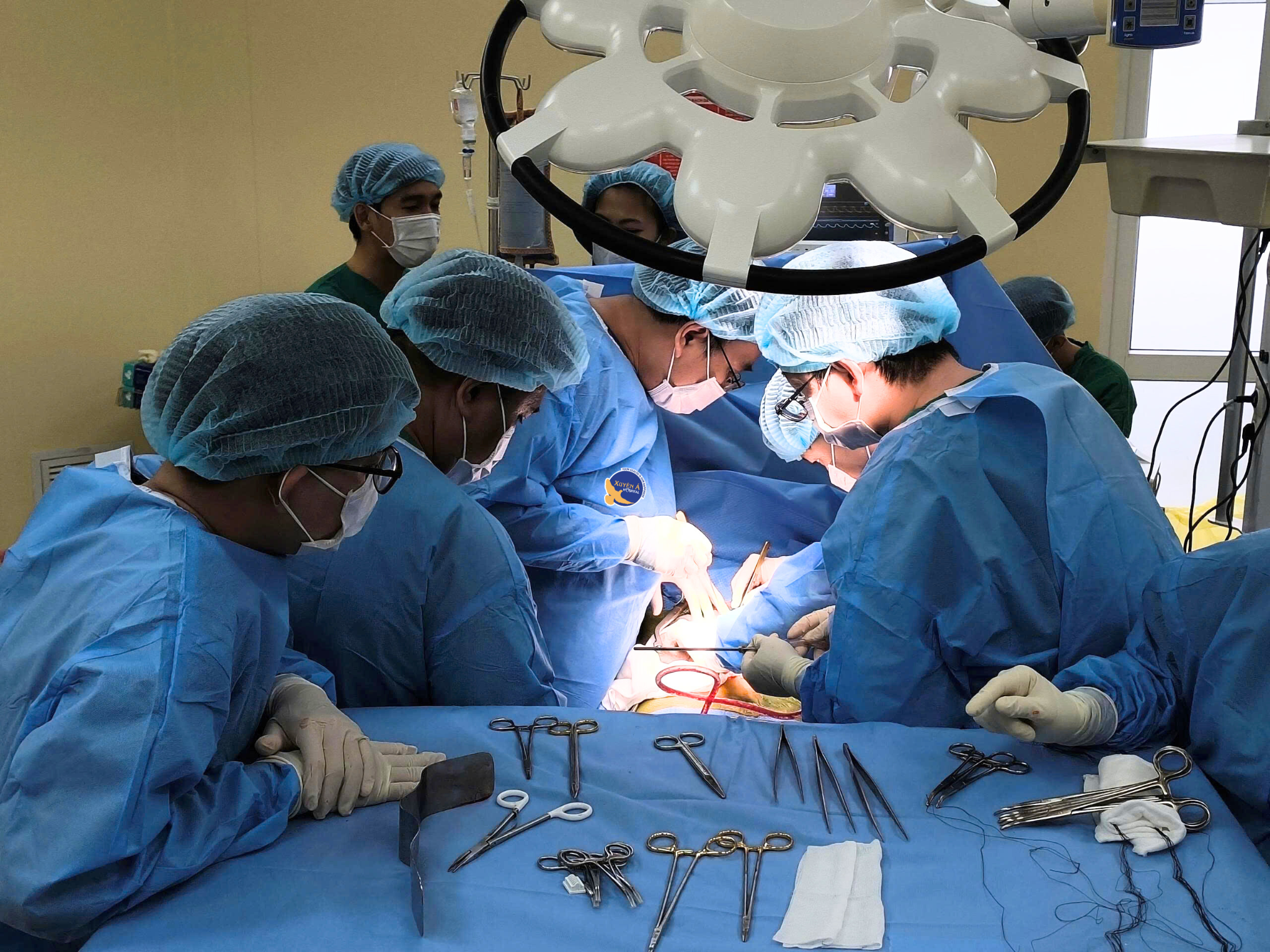"Thanks to this kidney transplant, I am healthy again," the woman said on 22/7, nearly a month after receiving her daughter's kidney. Both the donor and recipient are now in stable condition.
The patient was diagnosed with rheumatoid arthritis at the age of 28. For 24 years, she relied on pain relievers, anti-inflammatory drugs, especially corticosteroids and non-steroidal anti-inflammatory drugs, to manage her pain.
In 2020, she began experiencing muscle atrophy, generalized edema, persistent fatigue, and a loss of appetite. Subsequently, she was diagnosed with chronic kidney failure and required regular dialysis to sustain her life. As her condition deteriorated, a kidney transplant became necessary. Her daughter decided to donate one of her kidneys to save her mother's life.
On 24/6, doctors at Xuyen A General Hospital, in collaboration with a team from Cho Ray Hospital, performed the transplant. The surgery was successful, and the transplanted kidney is functioning well.
 |
The surgical team performing the kidney transplant. Photo: Hospital provided |
The surgical team performing the kidney transplant. Photo: Hospital provided
Dr. Vu Le Anh, Head of the Nephrology Department at Xuyen A General Hospital, who directly treated the patient, explained that the patient had several underlying conditions, including rheumatoid arthritis and drug-induced Cushing's syndrome, along with osteoporosis and obesity. This increased the risk of post-transplant complications such as infection and diabetes.
Furthermore, the patient's regular use of arthritis medication posed challenges for the surgery. Before the operation, doctors carefully adjusted her corticosteroid dosage to the lowest possible level to manage her joint pain while minimizing surgical risks. After the transplant, her intravenous fluids were also adjusted to prevent high blood sugar.
Dr. Le Anh highlighted this case as a reminder of the serious side effects of arthritis medication if not closely monitored. Prolonged use of immunosuppressants or corticosteroids can damage the liver, stomach, and especially the kidneys.
"Many arthritis patients are still overusing pain medication daily, which can cause acute interstitial nephritis and renal vasculitis, eventually leading to chronic kidney failure," Dr. Le Anh said.
Experts advise patients with chronic diseases against self-medicating and recommend regular check-ups and close monitoring of kidney function. Those undergoing treatment for chronic conditions like arthritis, lupus, or diabetes should proactively consult with nephrologists or rheumatologists for monitoring and timely treatment.
Kidney transplantation is a specialized procedure performed only at major hospitals in Hanoi or Ho Chi Minh City. By early 2024, after 31 years of organ transplantation and 13 years of organ retrieval from brain-dead donors, Vietnam has performed over 8,000 transplants. Currently, 4,000 people are on the waiting list, primarily for kidney and liver transplants.
Vietnam has over 10 million people with chronic kidney disease. The annual incidence of new cases is around 8,000, with 800,000 patients requiring dialysis, representing 0.1% of the population. However, Vietnam only has 5,500 dialysis machines serving 33,000 patients. Kidney disease is the 8th leading cause of death in the country.
My Y












